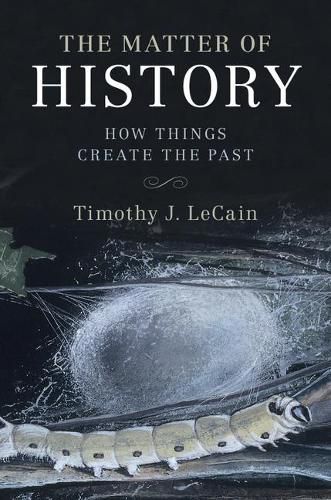Readings Newsletter
Become a Readings Member to make your shopping experience even easier.
Sign in or sign up for free!
You’re not far away from qualifying for FREE standard shipping within Australia
You’ve qualified for FREE standard shipping within Australia
The cart is loading…






New insights into the microbiome, epigenetics, and cognition are radically challenging our very idea of what it means to be ‘human’, while an explosion of neo-materialist thinking in the humanities has fostered a renewed appreciation of the formative powers of a dynamic material environment. The Matter of History brings these scientific and humanistic ideas together to develop a bold, new post-anthropocentric understanding of the past, one that reveals how powerful organisms and things help to create humans in all their dimensions, biological, social, and cultural. Timothy J. LeCain combines cutting-edge theory and detailed empirical analysis to explain the extraordinary late-nineteenth century convergence between the United States and Japan at the pivotal moment when both were emerging as global superpowers. Illustrating the power of a deeply material social and cultural history, The Matter of History argues that three powerful things - cattle, silkworms, and copper - helped to drive these previously diverse nations towards a global ‘Great Convergence’.
$9.00 standard shipping within Australia
FREE standard shipping within Australia for orders over $100.00
Express & International shipping calculated at checkout
New insights into the microbiome, epigenetics, and cognition are radically challenging our very idea of what it means to be ‘human’, while an explosion of neo-materialist thinking in the humanities has fostered a renewed appreciation of the formative powers of a dynamic material environment. The Matter of History brings these scientific and humanistic ideas together to develop a bold, new post-anthropocentric understanding of the past, one that reveals how powerful organisms and things help to create humans in all their dimensions, biological, social, and cultural. Timothy J. LeCain combines cutting-edge theory and detailed empirical analysis to explain the extraordinary late-nineteenth century convergence between the United States and Japan at the pivotal moment when both were emerging as global superpowers. Illustrating the power of a deeply material social and cultural history, The Matter of History argues that three powerful things - cattle, silkworms, and copper - helped to drive these previously diverse nations towards a global ‘Great Convergence’.